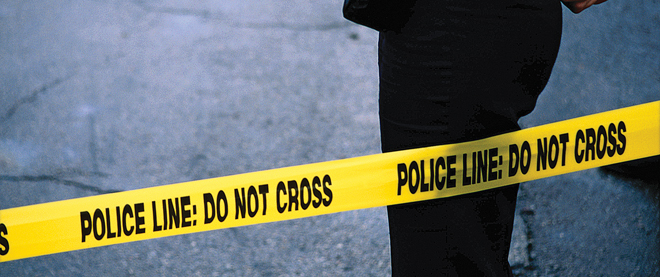The right to remain silent
Should a victim of a crime who fails to co-operate with police still be entitled to financial compensation?
Siede Preis/Getty Images
Share

Richard Foo Ma was sitting behind the wheel of his Mercedes, the clock on the dashboard approaching 1:20 a.m., when a black Lexus pulled up beside him in the parking lot of a popular Edmonton nightclub. Even if he had spotted the ambush, there was no time to react. A flurry of bullets shattered Ma’s windshield and left him for dead, blood leaking from his brain.
Amazingly, the 22-year-old survived the gangland-style shooting. (“A miraculous recovery,” as one detective later wrote.) But when he was finally well enough to speak to police—to help investigators figure out who may have tried to assassinate him on that Wednesday morning in October 2009—Ma shooed them away from the hospital. He told the cops “not to bother him anymore” because “he just wanted to live his life,” and that he had no intention of ever testifying in court.
Ma did end up in a courtroom, but not to face the gunman (who, to this day, remains at large). Instead, he is fighting for financial compensation from an Alberta fund that, like many across the country, provides lump sum payments to victims of crime. At the heart of his case is a controversial question: should a victim who refuses to co-operate with police still be entitled to a cheque?
“Are there things about this man’s past that maybe I wouldn’t agree with? That is certainly possible,” says Steve Sullivan, the former federal ombudsman for victims of crime. “But he was shot in the head—a pretty serious crime—and is suffering the consequences of that. So we have to ask ourselves: what is the fundamental purpose of these programs? Are they to get victims to co-operate with police, or to provide assistance to people who have been victimized by crime?”
Most jurisdictions, except the Territories and Newfoundland and Labrador, provide some form of financial aid to casualties of crime. Typically a few thousand dollars, the payments are meant to cover everything from “pain and suffering” to counselling bills to lost wages. But in order to qualify, a victim must be willing to assist police in their search for the culprit. In Alberta, where Ma was targeted, the law specifically states that an applicant must “fully co-operate with any investigation into the events that resulted in the injury.”
Ma filed his forms on Jan. 10, 2010, three months after his attempted murder. “Victim is unable to move his right side of body efficiently,” the application states. “He is unable to care for himself such as going to the washroom/shower (needs support).” The bureaucrat assigned to his file had doubts about Ma’s claim, and after reading the police report asked for additional details from an Edmonton officer probing the shooting.
“Ma was very uncooperative and refused to provide any information as to who would have shot him,” the detective responded in an email. “He stated that he did not want the help of police in finding out who shot him and said it did not matter to him that he almost died that night.”
Ma’s application was denied a few days later; when he appealed to the chair of the province’s Criminal Injuries Review Board, the result was the same. So in April, Ma took his case to court, insisting that he told investigators everything he knows about the shooting: i.e., nothing. “I believe I have co-operated to the best of my ability with the police officers,” he wrote. “My injuries are pretty severe (bullet shot in the head—brain injury) and [I] do not recall in detail what may have happened that night of the incident.”
Doug King, a criminologist at Calgary’s Mount Royal University, says although he sympathizes with Ma’s situation, he supports the provision that forces victims to be honest with police. “Accessing this fund is not a right; it’s a benefit,” he says. “And because it’s a benefit, there is an onus of responsibility to meet certain conditions. There has to be some kind of filter, otherwise we might as well just go to a system whereby I do my claim online and you send me a cheque.”
Ma’s cheque is still in dispute. The judge who presided over the court case didn’t actually rule on whether or not Ma is telling the truth. But in his decision, released last month, Justice Brian Burrows did order a fresh hearing in front of the Criminal Injuries Review Board, concluding that Ma wasn’t given the chance to fully explain his side of the story—believable or not—the first two times around.
Jordan Stuffco, Ma’s lawyer, did not respond to messages from Maclean’s. But in the end, his client’s courtroom victory may prove pointless. Last June, in the midst of his appeals, Ma pleaded guilty to possession of a firearm (police found a handgun in his Mercedes that night). In Alberta, the same law that requires co-operation before compensation disqualifies victims who are convicted of a crime linked to their injuries.